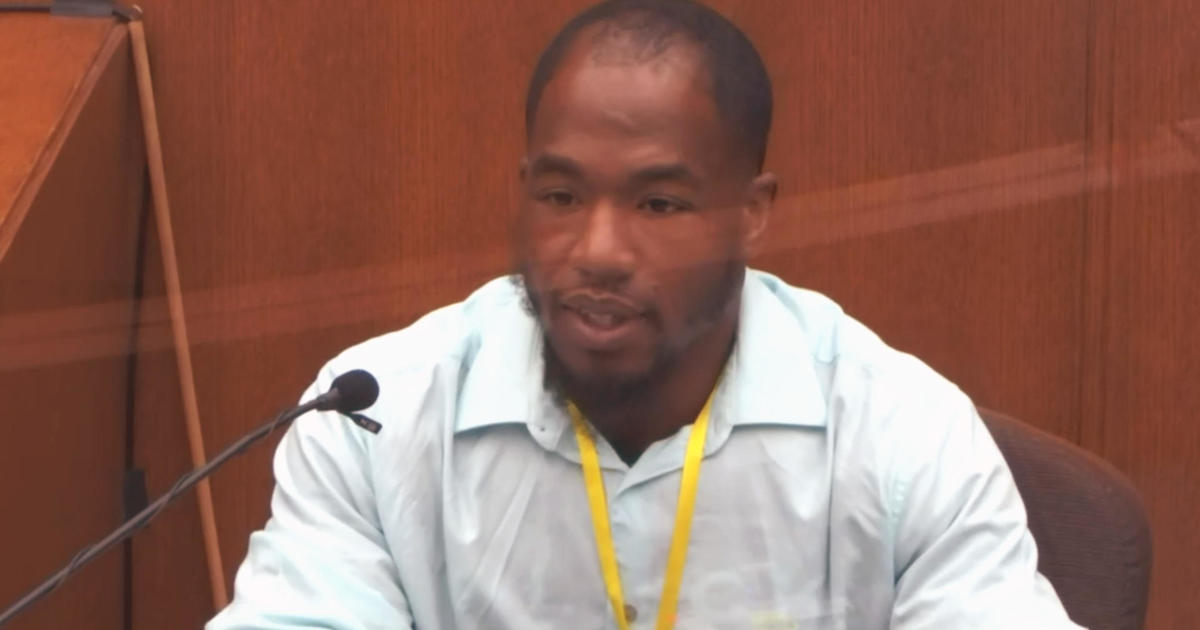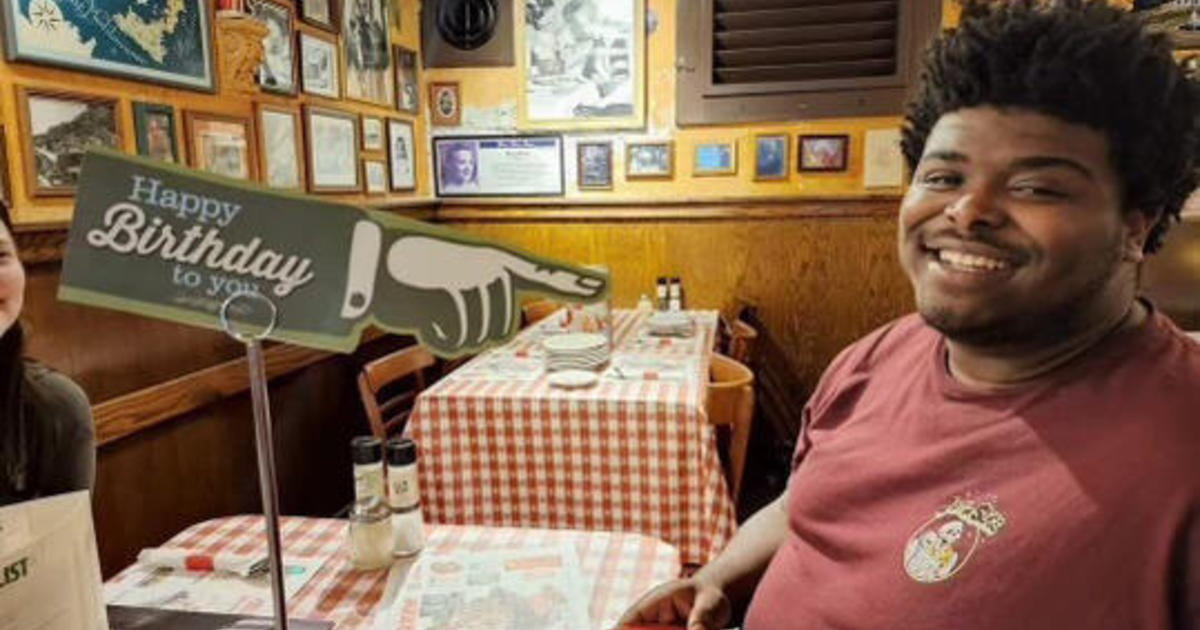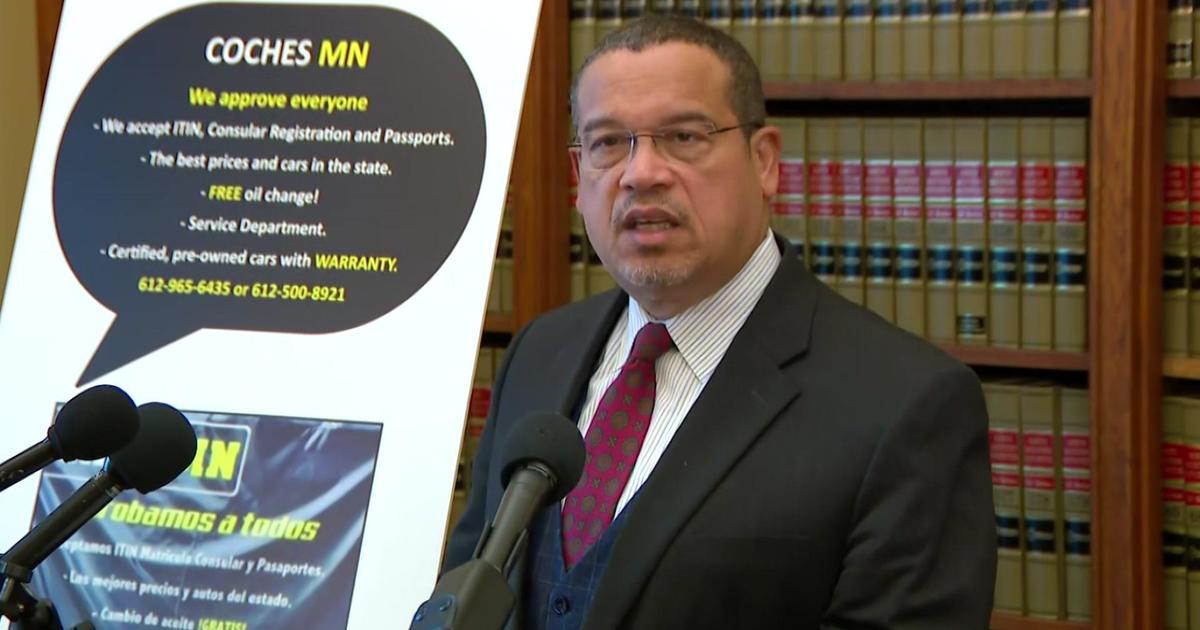Sources: Minneapolis Police Would Not Serve Search Warrant Unless It Was 'No-Knock'
MINNEAPOLIS (WCCO) -- Sources tell WCCO-TV that Minneapolis police would not serve the search warrant that ended in the death of Amir Locke unless it was a "no-knock" warrant.
St. Paul police originally asked for a "knock-and-announce warrant," but only went back to get the "no-knock" warrant after Minneapolis police said they would not serve the first one, the sources said. The original warrants are sealed as they are connected to a homicide investigation, St. Paul police say. They will be kept sealed until the court directs them otherwise.
The raid at Bolero Flats on Marquette Avenue was part of the St. Paul homicide investigation. Locke, 22, who was killed by Officer Mark Hanneman in the incident, was not named on the original warrant.
Minneapolis Interim Chief Amelia Huffman said during a press conference Thursday that both a knock and no-knock warrant were obtained so that the SWAT team could make its best assessment.
St. Paul police say that when law enforcement agencies need to serve a search warrant outside their jurisdiction, it's common practice to ask for assistance from other agencies. The agency which executes the search warrant determines which tactics will be used, St. Paul police said.
Huffman said police went to the building just before 7 a.m. as part of a St. Paul Police Department homicide investigation, in which several suspects were identified, as well as three locations in Minneapolis. Huffman said her department's SWAT team was asked to execute warrants on three apartments within "the building on Marquette."
Huffman said when Hanneman saw Locke holding a gun, he had to make a "split-second decision" on if there was a threat of great bodily harm or death, and to protect himself and his partners.
The medical examiner's report says Locke was shot at 6:48 a.m. and died at 7:01 a.m.
St. Paul police say no arrests have been made in the homicide investigation.
MPD 'No-Knock' Policy
Last year, the Minnesota Legislature passed a law restricting the use of no-knock warrants, adding new requirements and restricting them between the hours of 7 a.m. and 8 p.m., unless authorized.
Minneapolis police's "no-knock" search warrant policy was updated in November of 2020 by Minneapolis Mayor Jacob Frey and then-Police Chief Medaria Arradondo. It was a move Frey called "proactive policymaking and instilling accountability" after the death of Breonna Taylor during a "no-knock" raid in Louisville, Kentucky.
The policy states that unannounced entry search warrants are issued by a judge, who determines based on case details whether the situation requires a "no-knock."
Generally, a SWAT team handles those types of warrants, and Minneapolis police officers shall "announce themselves as 'Police' and announce their purposes as 'Search Warrant' prior to crossing the threshold of the door into the residence," the policy says.
"Look at the risks caused by doing these kinds of dynamic entries and offset that with what we gain in safety as a community," University of St. Thomas Law Professor Mark Osler said.
Osler said while many questions remain, it's important to look at the full scope of the investigation.
"People's sympathy is going to lie in the eyes they see it through. If you see it through the eyes of the people entering the room, of the blue, you are going to be thinking about the gun that could kill you. If you see it through the eyes of the person on the couch who is suddenly waking and people rushing toward you that's going to be a very different perspective," Osler said.
Additionally, police must make announcements periodically, especially when they move into an area where the previous announcement might not have been heard.
Officers must also be mindful of any known or "reasonably believed barriers or obstacles of cooperation," the policy goes on to say, including "perception barriers, mental or emotional capacity, physical and language barriers, including whether the individual is known or believed to be deaf or hard of hearing."
There are "exceptional circumstances" when a supervisor can authorize an immediate entry without making an announcement. Those situations are applicable when announcements would "create an imminent threat of physical harm to victims, officers or the public."
BCA Collects Evidence After Amir Locke Shooting
On Friday morning, the search warrant requested by the Minnesota Bureau of Criminal Apprehension was released. It shows what evidence the BCA requested and obtained inside the downtown apartment as part of its investigation into the police shooting.
Among the property and items requested were forensic evidence, trace or microscopic evidence, permission to fully document the scene, clothing, firearms, ammunition and more.
The BCA's search warrant then lists what evidence was collected, including:
- Bullet cartridges from a FC 9mm Luger
- A cardboard box "containing evidence classified as a pistol"
- Bloodstain evidence
- Apparent teeth
- A comforter, pillow and pants
According to the BCA, Minneapolis police officers were assisting St. Paul police with the execution of a search warrant at the Bolero Flats apartment building.
"At some point during the execution of the search warrant, gunshots were fired and a black male sustained injuries from the encounter and was pronounced deceased," the BCA's search warrant said.
MORE: Read the BCA's full search warrant here.
Body camera footage was released Thursday night. Minneapolis Interim Police Chief Amelia Huffman and Mayor Jacob Frey held a press conference after the footage was released, which quickly turned contentious.
Activist groups are calling for Hanneman to be arrested and charged with murder.
Locke's death is the latest violent incident involving Minneapolis police and Black men. The department has been under scrutiny for years and was put under the national spotlight after the killing of George Floyd in May 2020, for which former Minneapolis police officer Derek Chauvin was convicted of murder. Chauvin is currently serving a 22-and-a-half-year prison sentence.



